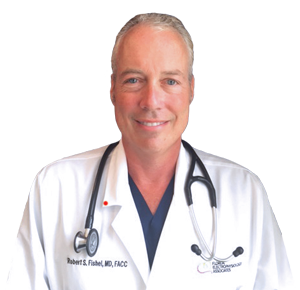Those are all implantable cardiac devices, but we are also making extensive use of external monitors, which are excellent for assessing arrhythmias. Those too are amenable to telemedicine and include both industrial grade telemetry products such as BioTelemetry´s line of monitors (patch and pendant) and consumer wearables, such as the Apple Watch. The former are given by prescription and the latter are a consumer-driven choice. The Apple Watch in particular has brought a lot of patients to us because it sends patients notifications when it detects that they are having an arrhythmia. Many times the user may not sense it, but the Apple Watch captures it and that prompts them to come to us, and in most such cases we end up diagnosing AFib. The challenge with the Apple Watch is that while it has high sensitivity when it is recording the heart’s pulse, due to its battery span it is not continuously recording – so it misses a lot.
For continuous recording and for suspected serious heart problems, we advise our patients to go with BioTelemetry. Its products transmit the data in almost real time, compared to other patch monitors where the user has to send the device to the company and wait several weeks to get results. In electrophysiology, where time is of the essence for detecting heart problems, this is simply impractical, in addition to the fact that it creates a liability for the physician who is trying to figure out if their patient is having AFib or a stroke.
All of those things we can accomplish electronically and remotely – and our patients love it. They love not having to come into the office and wait, and we´ve never had a patient complain about having a telemedicine console.
The danger of having so many excellent RPM products is that physicians are being deluged with increasing volumes of data, such that the technology that powers those devices ends up reaching a point of diminishing returns. Where there is so much data, you don´t know what´s important to focus on and what´s not, and you end up missing stuff that´s important. In the future we have to figure out how to zero in on the data that’s important and eliminate the noise.
In terms of the large-scale shifts the coronavirus crisis has spurred, I would equate this to a war. Every time there is a major war, there are changes in social practices, in how people feel about business and the economy, and in how technology advances. We are basically in a world war against the virus and that is changing how we do multiple things in multiple areas of society. For one, remote work is now entrenched in a lot of industries, whereas before it wasn´t. And telemedicine and remote patient monitoring are now here to stay, whereas before they benefitted only a minority of patients. We are never going back to having an office filled with 60 patients, all waiting in one room to see a doctor.

